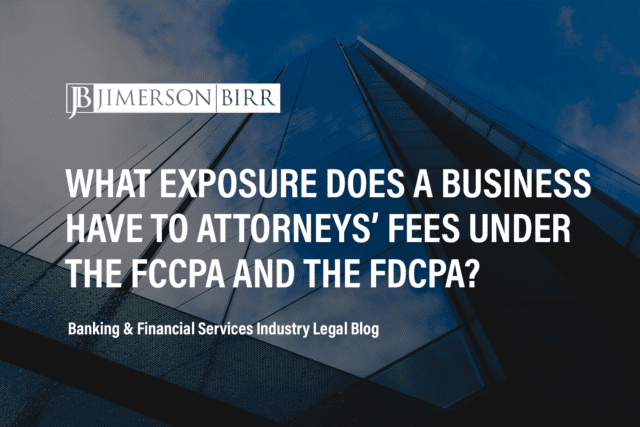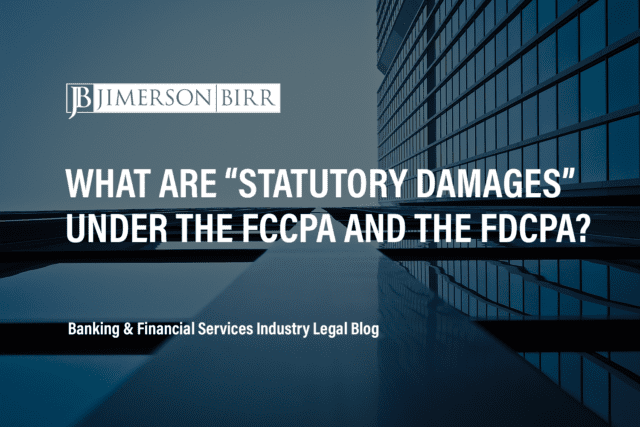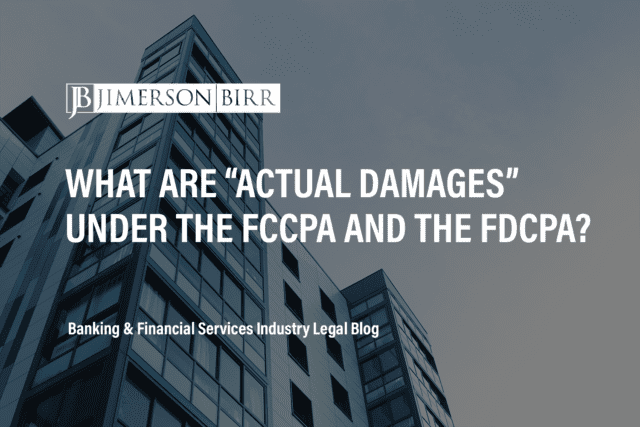What do challenging allegations and limiting exposure for damages entail?
Challenging allegations and limiting exposure for damages involve disputing the claims made by a plaintiff and minimizing the potential financial impact in the context of Florida Consumer Collection Practices Act (FCCPA) defense litigation. The FCCPA, as codified in Chapter 559 of the Florida Statutes, aims to protect consumers from unfair debt collection practices.
Another example of limiting exposure for damages involves disputing the amount of damages sought by the plaintiff. Under the FCCPA, a plaintiff may seek actual damages, statutory damages, and attorney’s fees. However, the defendant can challenge these amounts by presenting evidence that demonstrates the plaintiff’s injuries are not as severe as claimed or by arguing that the plaintiff’s requested statutory damages exceed the limits imposed by Section 559.77(2) of the Florida Statutes, which sets a maximum of $1,000 for statutory damages.
Need help defending against a class action? Schedule your consultation today with a top class action litigation defense attorney.
What are the strategic benefits of challenging allegations and limiting exposure for damages?
Challenging allegations and limiting exposure for damages offers the following strategic benefits:
- Preservation of business reputation: Businesses can protect their image and maintain good standing in the community by successfully disputing claims.
- Reduced financial liability: By contesting the amount of damages sought, defendants can potentially lower the economic impact of a judgment against them, including avoiding excessive statutory damages, as outlined in Section 559.77(2) of the Florida Statutes.
- Increased likelihood of settlement: A well-prepared defense can lead to more favorable settlement negotiations, resulting in quicker resolution and reduced litigation costs.
- Deterrence of future claims: A robust defense may deter other plaintiffs from filing similar claims, as they may perceive the likelihood of success as low.
What steps can class action defendants take to challenge allegations and limit exposure for damages?
Defense counsel should consider the following:
- Conduct comprehensive research: Investigate the specific facts and circumstances of the case, review relevant Florida and federal statutes, and assess case law to identify potential defenses and strategies.
- Evaluate the statute of limitations: Determine whether the plaintiff’s claim falls within the one-year statute of limitations outlined in Section 95.11(3)(p) of the Florida Statutes. If the claim is time-barred, counsel should assert this defense.
- Assess the plaintiff’s standing: Verify that the plaintiff has proper standing to bring the claim under the FCCPA, ensuring they are the correct party to assert the alleged violations.
- Challenge the sufficiency of the allegations: Scrutinize the plaintiff’s complaint to identify deficiencies in the factual allegations or legal theories and file a motion to dismiss if warranted.
- Analyze the claimed damages: Review the plaintiff’s claimed damages to ensure they are supported by evidence and fall within limits imposed by the FCCPA. Challenge any unsupported or excessive damages and present evidence to counter the plaintiff’s claims.
When a set of facts is appropriate to meet the litigation requirements, there are many paths a claimant may take. We are value-based attorneys at Jimerson Birr, which means we look at each action with our clients from the point of view of costs and benefits while reducing liability. Then, based on our client’s objectives, we chart a path to seek appropriate remedies.
To determine whether your unique situation may necessitate litigation, please contact our office to set up your initial consultation.
Frequently Asked Questions
- Can a defendant argue that the FCCPA does not apply to their specific situation?
A defendant can argue that the FCCPA does not apply to their situation. For example, the FCCPA may not apply if the defendant is not a “debt collector” as defined by Section 559.55(6) of the Florida Statutes. In such cases, defense counsel should present evidence to demonstrate that the defendant does not fall within the scope of the FCCPA, which could result in the dismissal of the claim.
- What defenses apply to alleged violations of the FCCPA?
Defendants can raise various defenses in response to alleged FCCPA violations, such as challenging the plaintiff’s standing, arguing that the claim is time-barred by the statute of limitations, or asserting that the defendant is not a debt collector as defined by the FCCPA. Additionally, defendants can challenge the sufficiency of the plaintiff’s allegations, arguing that they have failed to state a claim upon which relief can be granted.
- Can a defendant recover attorney’s fees if they successfully defend against an FCCPA claim?
Yes, a defendant may recover attorney’s fees if they successfully defend against an FCCPA claim. Under Section 559.77(2) of the Florida Statutes, the court may award reasonable attorney’s fees to the prevailing party, including plaintiffs and defendants. This provision encourages the resolution of disputes and deters parties from pursuing frivolous claims or defenses.
Have more questions about a class action defense-related situation?
Crucially, this overview of challenging allegations and limiting exposure for damages does not begin to cover all the laws implicated by this issue or the factors that may compel the application of such laws. Every case is unique, and the laws can produce different outcomes depending on the individual circumstances.
Jimerson Birr attorneys guide our clients to help make informed decisions while ensuring their rights are respected and protected. Our lawyers are highly trained and experienced in the nuances of the law, so they can accurately interpret statutes and case law and holistically prepare individuals or companies for their legal endeavors. Through this intense personal investment and advocacy, our lawyers will help resolve the issue’s complicated legal problems efficiently and effectively.
Having a Jimerson Birr attorney on your side means securing a team of seasoned, multi-dimensional, cross-functional legal professionals. Whether it is a transaction, an operational issue, a regulatory challenge, or a contested legal predicament that may require court intervention, we remain a tireless advocate every step of the way. Being a value-added law firm means putting the client at the forefront of everything we do. We use our experience to help our clients navigate even the most complex problems and come out the other side triumphant.
If you want to understand your case, the merits of your claim or defense, potential monetary awards, or the amount of exposure you face, you should speak with a qualified Jimerson Birr lawyer. Our experienced team of attorneys is here to help. Call Jimerson Birr at (904) 389-0050 or use the contact form to set up a consultation.


We live by our 7 Superior Service Commitments
- Conferring Client-Defined Value
- Efficient and Cost-Effective
- Accessibility
- Delivering an Experience While Delivering Results
- Meaningful and Enduring Partnership
- Exceptional Communication Based Upon Listening
- Accountability to Goals











